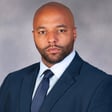Introduction and Empowerment through Coaching
00:00:00
Speaker
people free themselves, whether it's freeing themselves when I work for labor unions, you know, from, you know, professional oppression, right? So here for freeing themselves through recovery, you know, the people are doing the work. And so for me, that picture would have to be me on the side, if I'm like a basketball coach or something, right? I love basketball and, you know, maybe the folks are
00:00:28
Speaker
They're the ones running the plays. I'm just like, hey, this play might work here or there. But that's sort of how I would paint the picture.
Introducing 'Take Your Homeboy to Work Day' Podcast
00:00:37
Speaker
What's up, everyone? I am Brandon Alexander, and this is Take Your Homeboy to Work Day Podcast, your favorite podcast to learn about career paths.
00:00:47
Speaker
Here's what you can expect by tuning in. Each episode, I will dive into a new career. We'll learn the nuts and bolts of jobs within each path. We'll also learn how these jobs impact our everyday lives. And finally, I'll ask each person how they find purpose and fulfillment through their work. So for anyone interested in hearing the firsthand experience of a specific career, these conversations are your launching pad to learn more.
00:01:15
Speaker
Today, we're discussing government relations and advocacy.
Meet Joseph Pierce Jr.: Mental Health Advocacy
00:01:20
Speaker
Relations and advocacy requires leaders to serve as the unified voice for a group of citizens with a shared cause. They fight to make sure that cause is top of mind with policymakers using their expertise, relationships, and negotiation skills.
00:01:34
Speaker
They also educate the community they represent about progress and invest time growing awareness to others to build more support. Today, I'm proud to speak with Joseph Pierce Jr., the Director of Government Relations and Advocacy with Mental Health Partnerships. Joe fights for policies that will meet the needs of his members in Delaware, Pennsylvania, and New Jersey. He works hard to protect their rights, connect them to benefits, and ensure their voices are heard and respected.
00:02:03
Speaker
His background leading successful grassroots campaigns in the battleground city of Philadelphia has even earned him recognition from President Biden.
What Drew Joseph to Government Relations?
00:02:12
Speaker
It's an honor to learn and speak with you today. Welcome, my brother.
00:02:16
Speaker
Thanks for having me, man. I was listening and I was like, who is that? That's you. I'm excited to have you on, man. And I know the audience is going to love to hear about your career because it has such an impact on our society.
00:02:36
Speaker
So the first question I want to ask is what drew you to this industry or this career of campaigning, working with government, helping out people, helping out the less fortunate? You know, how did you learn about it or who introduced you to it?
00:02:50
Speaker
Yeah, so that's a really good question because, I mean, I'm originally from Lake Wells, Florida, like small town, our south of Orlando, our east of Tampa, in the middle of Orange Grove. And so when it comes to government relations, like came to politics, I knew about elected officials, my parents always, you know, talking while we were growing up, I always talked about voting and that kind of thing. So I understood that, right? But I didn't understand the industry. I didn't know it was like,
Joseph's Path: From Business Major to Lobbying
00:03:17
Speaker
a thing in that regard. So I went to Florida A&M University. I was in the business program there, which is going to fame is also where I met you. You know how that goes. But so the thing is, Florida A&M is in Tallahassee, Florida, which just happens to be the state capital. And so politics were around. And I chose business.
00:03:46
Speaker
as a major because I was like, well, I got to be able to make some money at some point. And I felt as though that's where money was. And it was the most marketable degree I could get. And so with that being said, while I'm in business school, it was, you know, fam, you had some beautiful women. And so it was one in particular that was like, hey, you know, based on your skill set, you should look into being a lobbyist. I was like, what?
00:04:16
Speaker
So I said, OK, I'll listen. But I also was very, very curious about this. She was super smart. And she had way more experience in professional life than I did. And so she'd been exposed to it at an earlier age. And so one of the things that I wanted to get from family was exposure to those things. And so I actually just started looking up what is a lobbyist and looking at their skill sets and compared it to who I was and what I
Early Government Job Experiences and Challenges
00:04:43
Speaker
And I was like, huh, that actually sounds so cool. You know, the glamour side of it, like, oh, I'm just going to go on schmooze, you know, with elected officials and get them to do what I like them to do. And, you know, hopefully get like work for some big Latvian firm and
00:05:02
Speaker
you know, have like a corporate card and, you know, go out for drinks and, you know, small parties, as Stewie would say. That was what initially drove me to it. And then
00:05:21
Speaker
this one summer, not this one Christmas holiday, but I'm sorry, one winter break. Well, you know how it is a fan, man. So when you're getting your net check, it can be a little late sometimes. And so what ends up happening is when December comes around and before January hits, like you might not get your net check until mid-January. That might be early for you. And you might not even get it until February, right? And so I...
00:05:51
Speaker
a family friend who I call my godfather owns a law firm in Polk County. And so while I was home for those few weeks, I asked him, could I work for him? Because I had interned for him before. And so he allowed me to work for him so I could earn rent for a junior. I'm trying to be a responsible adult, right?
00:06:08
Speaker
And so I got the rent while I'm there because I entered before I sort of although I was really young, I was sort of longing to tooth as far as like being around that law firm. And so it's an African American law firm, although they had, you know, people of all different backgrounds.
00:06:26
Speaker
but there was a particular guy who was new and I'm busting his chops, you know, as a young guy, but he's loving it, right? Like he's loving it. Like it was just really, really cool. And so at some point, you know, he just took an interest in young brother. What do you want to do? And I was like, man, really? I want to like be a lobbyist. I want to like, you know,
00:06:45
Speaker
No, that kind of thing. And he was like, oh, man. Well, my godfather, right? Like, the one I call my godfather. He's an alpha. As you know, Brandy, you're my line brother. We're both members of Alpha Attorney Incorporated. A5?
Building Relationships in Government
00:06:59
Speaker
For sure. And then we, and this other guy happened to also be a member of A5A. And so he was just like, hey, man, well, you know,
00:07:09
Speaker
I have a line brother that's up there and he is a, he's a lobbyist. He was like, well, you know, maybe I can connect you with them. I was like, all right, cool. Like five minutes later, he was like, nah, matter of fact, come here. He gets his line brother on the phone right then in front of me. And he says, Hey, could you
00:07:29
Speaker
Because I got this young brother here and he wants to basically do what you do. Could you reach out and can you connect with him? And the guy was like, all right, we'll put him on the phone. He puts me on the phone. So hey, brother, he just want to hear me for a second. And I'm like, hey, I'd love to and blah, blah, blah. Well, he says, when you get back.
00:07:46
Speaker
He's like, give me a call. So I get back, I give him a call the very next day. Like I got back to Tallahassee like, you know, late that one particular night, but earlier the next morning I gave him a call. So he was like, all right, fine, cool. He's like, well, meet me at the Capitol building, 8 a.m. tomorrow morning. I was like, all right. He didn't tell me what to wear. He didn't tell me what we were going to do. He didn't tell me anything. But I knew, put on that suit, sir. So I put on the suit and showed up there at the Capitol building, 8 a.m.
00:08:17
Speaker
And I was like, all right, so I'm sitting there with him. Well, I've never heard these words before, Brandon.
Career Growth: Mentorship and Continuous Learning
00:08:23
Speaker
I've never heard these words before. He told me, we're going to find you a job today. What?
00:08:29
Speaker
So he took me over to the, so in the state Capitol building in Tallahassee, he's got like this, it's like three sections. He's got the middle section, which has all kinds of offices in it. And then, and also, of course, the executive place. But then you've got, on one side of you have the house side, state house side, and the other side, you have the state senate side. So he takes you to the state house side first, and then he said,
00:08:54
Speaker
You know, I was like, Oh, this is cool. Little rambunctious, but it's cool. It was a little nickname. He said, yeah, we called the animal house. And then he takes me over to the state Senate side and it was much more calm and it just had a different vibe to it. And he's like, and this is where you should be. And so he took me around and, uh,
00:09:12
Speaker
Long story short, he took me to the state legislator, the state senator from, from my hometown. Right. And, you know, just introduced me. So I, and I spoke, he just happened to be in the office. That's by Sarah. That was by happenstance, just happened to, they aren't always in the office. So it happened to be in the office and I'm like, all right. So I tell him about who I am. I give him that quick 32nd elevator speech. Right.
00:09:35
Speaker
And I'm like, hey, this is what I want to do. This is what I'm trying to go. And I said, well, I've interned in such and such. And I mentioned the guy who I said I called my godfather. And he perked up. He perked up. I will say I knew that he would have known of him. Right? So yeah. So I made sure to say that. And so he said, all right, we'll see what we can do. And this is like a white male.
00:10:00
Speaker
millionaire Republican, right? Like, you know, and I'm a, I'm a, I'm a stone cold Democrat, but I'm like, all
Impact of Mental Health Advocacy
00:10:07
Speaker
right. All right. But he was, you know, it was fine. Trying to get some, some background and called it, you know, my Godfather. And next thing I know, I was working in the state Senate Sergeant at Orange office.
00:10:19
Speaker
Well, that's a great transition, because that's actually one of the things I wanted to ask you. Well, first, let me say, a pretty woman, the bras.
00:10:33
Speaker
are the same reason, same way I ended up in my career also, so I can relate with that. You were just about to go into the Sergeant at Arms, and so a job, and so my next question, was this your first entry-level job into government work? And if so, how much did you get paid? And if you don't feel comfortable sharing your specific salary, what's the range? I'm comfortable sharing it, because they...
00:11:00
Speaker
What was your first job and what was your salary in this industry? Oh man, so look man, salary is a stretch as far as what to call that. It was actually, man, I was just
00:11:16
Speaker
So in Florida, the actual, the way session works, right? Session is when lawmakers are focused and have to make these laws, right? They have to vote and present all these kinds of laws, right? The legislation to become law. And so, which is distinction for those out there listening, something isn't law until it's actually been signed into law by the executive branch. But there's other ways for it to, it's a lot of stuff to talk about, but that's the most basic way for it to become law.
00:11:47
Speaker
So with all that being said, so here in Pennsylvania, it's year round, right? There's quote unquote session is year round, but they have some breaks. I would say like summer's real like kind of thing, but in Florida, it's only two months. It's only two months. It's basically March and April, right? And so the job was only for those two months initially, right? And
00:12:12
Speaker
I was just opening doors for folks in committee meetings. I was, you know, I mean, sheesh. What was the title of the job? I don't know. It just was this. It just kept charging in arms, O.P.A. and other personal purposes. How did you get paid? Ten dollars. Per hour? Per hour.
00:12:35
Speaker
And I had to work those pin arms. So it wasn't like it was a salary. It was like, if I wasn't there doing it, just them 10 hours, hanging tight, time off. I didn't get into that, man. But it was a good introduction. And it continued to fuel your interest. It had to. So one thing in particular, because I know I can get a little long winded when it comes to my responses. I appreciate you. But one thing in particular that really, really helped with when I was working with the Senate Sergeant was our arms officer.
Brandon's Connection to Mental Health Advocacy
00:13:01
Speaker
is that they actually forced you to learn every single senator. So you could call them by name, right? And so sometimes like we've had a cheat sheet that was clipped to our side where like, and so it was really, it was color coded the whole thing, right?
00:13:17
Speaker
And we got a chance to know him. And so with that, I just kept interacting with him as much as I could, have a little personality. But yeah, that was the best thing that I got, besides just exposure in general, was the fact that I had to learn those senators' names.
00:13:35
Speaker
Another question that came to mind. You mentioned you were at FAM at the time when all of this interest was growing. Do you remember any of your courses that you took at FAM that either directly tied in or had some value to you as you decided to go forward? What college courses talked about government relations and helped you, just helped give you more information? Yeah. So excuse me. So in undergrad,
00:14:05
Speaker
It was more so like, not really, really like, it wasn't a lot of it, right? However, I'd say, so while they also got my master's in public administration at FAM, and I eventually transitioned to the appropriations committee, I knew that I had to move on from the Senate Sergeant and Arms Office, although they were great to me, but I knew I needed them in order to make a real impact. I needed to move on.
00:14:31
Speaker
So what I would say is that having the business background, so financial management classes, understanding spreadsheets when it comes to, because essentially working on the appropriations committee, we were determining who got what money. I mean, the lawmakers made the decisions. Remember the nuts and bolts. We had to go and make recommendations. We had to do the research. I even had to go around the state and visit certain places.
00:15:01
Speaker
At one point, I was doing civil and criminal justice. And so I actually had to go to one of those state prisons. And I sat in the electric chair for a second. It's a whole thing, a whole thing. I know, I know. But I've survived.
Joseph's Career Highlights and Advice
00:15:19
Speaker
But with that being said, I'd say financial management, anything around negotiations, those were good courses. In grad school,
00:15:29
Speaker
What really helped was the theory around like policy, like, uh, so my policy courses, there were two theories where it was like most, most policy that government entities make are based on either they do the most good, right. Or they do no harm at all.
00:15:50
Speaker
So those are like the two main theories that sort of inform your decision making in those regards. But yeah, those are my, so policy, anything around like my policy courses and financial management, those are my like real courses where they really helped me.
00:16:05
Speaker
I appreciate that. Outside of college, were there any newsletters, periodicals, specific people? I guess what did you learn outside of the classroom back when you were younger that you used to continue to learn more?
00:16:24
Speaker
Oh, so for me, it was actually more like not the periodicals, but the people. So what I mean by that, like, so the guy who got me my first job is still a mentor to this day. Right. And I was just a sponge. I mean, I would pick his brain as often as I possibly could. I mean, I'm the type that
00:16:46
Speaker
You know, I'm here in Philadelphia now and I've attained even, you know, I've obtained additional mentors in that regard, but it's because I've been just like persistent. Like I look around and see like, okay, who's killing it right now? Or, so because I'm looking at it from a couple of different ways. I'm looking at it like, who's my competition? To be honest with you, because I'm a competitive dude. So on my level, who's my competition? But then also I want to talk to those who have done them already, who are like beyond my level.
00:17:13
Speaker
And so my main thing has been like, so even then, even back then when I was just getting my start, you know, I would see folks, and I would just, if I got any kind of opportunity to talk to them, I would just pick their brain, pick their brain, pick their brain about like,
00:17:29
Speaker
I think about it as Peyton Manning. I'm not that great, because I'm very clear about that. I'm not as great as Peyton Manning is in football in my role. But what I think about is the fact that he always talked about what are his fundamentals whenever he is in practice, his footwork, any of those kinds of things. And I try to figure out what are the fundamentals in my industry that I can always work on. And one of those things in particular is just picking folks' brains. I just do that all the time.
00:17:57
Speaker
Outside of that, it would just be newspapers. But I don't know if you want to talk about what I do now as opposed to what I did there.
Adapting to Technological Changes in Advocacy
00:18:03
Speaker
Yeah. So we're going to transition to that. So I guess just in summary, and let this be a lesson for all the listeners out there, that mentorship is invaluable. And so if there's somebody you think you can learn from, whatever you are doing, do not be shy. Walk up to that person, introduce yourself, and ask how you can help them.
00:18:23
Speaker
Let's jump into now about your job. I'm sorry. I'm sorry, Brandon. You just said something. You just dropped the jewel. And that's something that folks don't think. So most people think that when they're looking to get someone to help mentor them or give them information, that they're just there with their handout asking for something from them. What you said was ask them how you can help them. Having that kind of mentality,
00:18:48
Speaker
Right? It's so important. I just want to extrapolate that from the conversation so the folks listening will know how important that is. Think about how you can help. Even if you can't, just having the spirit of wanting to be helpful, people appreciate.
00:19:02
Speaker
message. Appreciate that. I'm loving this next question because when we think about government-focused
Conclusion and Key Takeaways
00:19:13
Speaker
jobs or jobs that are tied into making policy changes, working with the government,
00:19:19
Speaker
And I guess in corporate America, we're always talking about return on investment and your value and how you are using the investment of your job or salary to then create more money for the ownership or whatever your purpose is supposed to be. So my next question is, how does your job make money for the company? But I guess since you do different type of work, how do you show your value to the funders of your company?
00:19:46
Speaker
How do you know that you're being successful and that you can increase the funding for next year? So, you know, how do you make money for your company or how do you raise the ROI for, you know, through your job? Sure, sure. That's a good question. Good question. So there are some ways that I do it very directly, other ways of being more abstract, right?
00:20:04
Speaker
So directly as like, so in addition to my government relations and advocacy work that I do, I also run certain programs within our organization. Our organization has about 40 different programs throughout the region. And so, and some are very specific kinds of programs. And so though we, so even like right now when my budget cycle, meaning that, you know, I don't know if we want to do it. So I say this.
00:20:34
Speaker
If the fiscal year is July 1 and June 30th, and we have contracts with these different government entities to fund programs that we run, then
00:20:44
Speaker
you know, we have to propose to renew, like we have to make these proposals to renew or at least have conversations and meetings to determine the renewal. Additionally, if you're trying to expand, you know, you need to get more programs. So there's funding that you get from government entities through the programs that I manage. That is a way that I can bring in money. But the other thing is that specifically why they hired me
00:21:10
Speaker
was, you know, our CEOs spoke to me very distinctly about this is that, you know, we wanted to raise the profile of our organization. And so you can very easily see, okay, so who knew about this organization before I got here, right? What relationships am I bringing to the table? What other opportunities can I bring into the table or creating or capitalizing on to
00:21:33
Speaker
to bring more awareness about our organization. And so I coordinate certain kinds of events for us, whether it's a lobby day or we try to do forums, coalition building, resolutions on our behalf, past legislation on our behalf, figure out ways to position our organization as a leader within the mental and behavioral health community here in the region.
00:22:03
Speaker
Gotcha. I totally understand that. Hey, I guess part of what I want the listeners to learn is how people's jobs, careers has an impact on society or the everyday lives. And so every day as just consumers or end users of something, we take advantage, but we may not know all of the steps or all of the people involved in us taking advantage of something on the end.
00:22:31
Speaker
So in terms of what you do, what impact does it have on society or other people's lives? How does your work ultimately manifest itself for a customer or a user or specifically your members at MHP? Sure. So that's actually it.
00:22:49
Speaker
My entire life, through any of the advocacy work I've done, although I started this off by saying the shiny stuff is what attracted me to it. Just like with anything, once you get into an actual industry or career path, sort of figure out like what's most important. And my thing was that, you know, people always said,
00:23:08
Speaker
be careful when you get into politics because it's all corrupt and it's all the negative things you hear about politics, right? Right, right, right. So I was like, man, I don't wanna be that person. So then I'm like, because this is the thing.
00:23:22
Speaker
Once you get into any industry, you learn the skills necessary to be effective within that industry, if you're at least competent, right? And so you can use these skills, what I found out, you can use the skills for good or for bad or for indifferent or whatever, right? And so I always wanted to make sure that the skills I learned, I was able to, as I would say, make my mama proud. And so my government relations and advocacy work has been specific around helping people.
00:23:48
Speaker
And so the work that we do actually helps people all the time. So we service about, I suggest in Philadelphia, about 10,000 people every year.
00:23:59
Speaker
That's 10,000 participants. Yeah, 10,000 participants every year that we help because we believe that recovery is possible. We focus on peer support. So over 60% of our organization are in recovery themselves. And whether that's, excuse me, whether that is something that is a direct relation to their own experience or a family member,
00:24:26
Speaker
because we actually have programs specific to family members. So what I mean by that, why do I give that contact? Give that contact to say that the people that we help every day, you know, like they are a member of somebody's family, they are a member of society, right? So there's the help that we provide to that participant directly. But then also, what does that wellness do for their family unit?
00:24:49
Speaker
you know, what does a wellness do for their circle unit, right? Um, and it's just sort of, as you can imagine, it helps to minimize a lot of the, you know, sort of the risk of things that could go wrong. And I'm saying this delicately, right? The risk of what could go wrong. I think that we have a significant impact on every single year in this region. And that's, that's the,
00:25:18
Speaker
It's, they always say that the most difficult thing for government entity to prove is what it prevented. And we do a lot of that here, but we also do we do de escalation. Right. You know, right now what we try to do, we're trying to participate with.
00:25:37
Speaker
other organizations and government entities, emergency intervention, like so if a person's pulled over, or stopped by police, not whether they're in a car or not. And mental health has been, you know, cited as, you know, a factor.
00:25:56
Speaker
I'm like, what's that intervention look like? So we can avoid some of these other issues. So that's just one way. That's like the bigger ways that people see it every day. But just creating community where there wasn't community before is a beautiful thing that we do every day, man.
00:26:13
Speaker
Wow, excuse me, wow. I think that's really impressive. I served on the board down in Fort Worth for National Alliance on Mental Illness for two years. And so we received funding. I was able to do what I was able to do on the board because of someone like you. So that's part of the reason why I wanted to reach out and talk to you because of that impact you're having. And I wanted to learn the upstream
00:26:41
Speaker
of how I was able to do what I do with Nami in Fort Worth. I believe you're like several steps ahead of what I was able to do. So it was really great to learn and hear that. No, let's go. When we work with Nami here, man, and you know, and yeah, I appreciate that work that you did, man, for sure. Tight, tight. I mean, I like that concept of upstream, but that's for another day. Yeah. I got the book, man.
00:27:07
Speaker
I have a little bit of an abstract question for you next. Can you explain your job or your career, so the collection of your jobs, can you explain them by describing a picture or scene of you doing it? If you had to tell an artist to commemorate your career with a painting, what would that painting look like?
00:27:32
Speaker
So I thought about this. Originally, I thought about it with, so I'll say what I thought about. I thought about me sitting in the middle, almost like a portrait, and then all representations of all the types of people that I've helped. And me sitting there with this content smile of just gratitude. And it was cool, but then I thought that
00:28:02
Speaker
feel like that sounds really self centered, literally, in their portrait center. And so I'm like, No, no, no, no, this has to be me on the sideline with all the people up front. Like, you know, sort of directing traffic or, you know, just like, it has to show me doing some kind of work sort of on the sideline, right? Because
00:28:31
Speaker
the people themselves empower themselves. I just give information, I present opportunities, you know, but the people free themselves, whether it's freeing themselves when I work for labor unions, you know, from, you know, professional oppression, right? So here, freeing themselves through recovery, you know, the people are doing the work. And so for me, that picture would have to be me on the side, if I'm like a,
00:29:01
Speaker
basketball coach or something, right? I love basketball. And maybe the folks are, they're the ones running the plays. I'm just like, hey, this play might work here or there. But that's sort of how I would paint the picture. Gotcha. Thank you.
00:29:18
Speaker
I want to now transition, continue more along the abstract, talk more about your own motivations, what keeps you going when things are tough. So first question, what's been your proudest achievement in either your current job or your career as a whole? I would say it was actually my proudest moment, because originally I was thinking, all right,
00:29:45
Speaker
It's some piece of legislation that I helped to pass. But actually, it was a comment. It was a comment, my proudest achievement. I was working for this labor union. I put a lot of work in, right? A lot of work in. And I was leaving that job for...
00:30:07
Speaker
for another job, you know, like it was just time for me to move on. And, you know, you sort of build a family in organizations like this, right? And my supervisor, supervisor came in to do the exit interview. And so it was, you know, my supervisor, supervisor and my supervisor. So it was those two. And what he said to me was that,
00:30:36
Speaker
I want to honor you with acknowledging how you put the members first. It was like your relationship with the members of this union, the people that we fight for every day. We've seen you over these three years really support your interactions with them, the way they love you, the way you love them, the way you put them first.
00:31:03
Speaker
is he's like, I just want to honor you by saying that we see, we saw it, we see it and we're appreciative. That was like the moment for me. That was it, man. Like I, I couldn't, I couldn't tell you, like, you know, we pass all kinds of legislation and when you're in it, it's almost like battle and you move on from it. But, um, and you're helping people that are impactful. Sure. But like at the end of the day, we're in the people business and
00:31:32
Speaker
and the people caring business. And that was it for me, man. That was it. That sounds a lot like the picture that you just described earlier in another way. It sounds just like that. That's good to hear, man. That's really good to hear. So we've talked about a lot about the good. But as with anything in life, there's always the bad and the ugly side of it.
00:31:55
Speaker
So if you were giving advice to someone or I guess you could share your own experience from either firsthand or what you've seen happen to other people, what is the bad or the ugly side of your, of working in government that needs a watch out? Yeah, no, great question there. So the, so first thing is that, you know, most people don't have this amazing first like, uh,
00:32:23
Speaker
experience. Well, the experience may be amazing, but you're not going to be paid either at all or a lot or a lot, right? And so you got to go into this knowing you're going to do some, some, some, some jobs, right? Like that are not going to pay you a lot. So, all right. So Brandon, you're my line, brother.
00:32:42
Speaker
You remember how broke I was. And even when we like finished college and everybody's like moving on and everybody's like buying a house and doing this and that, whatever, I'm like, yo, I'm still still working. You know? Like, what job you got today, man? I'm like, you know, still going. You know? And, you know, if we linked up for, you know, a five year reunion or something like that, or if we, you know, linked up for whatever,
00:33:12
Speaker
I was always counting them coins, man. I always had the phone out checking that Wells Fargo account at the time. Man, how do I pay for this tonight? OK. Or do I have to play sick? You don't have to play sick. So yeah, that's the first thing, man, is you got to do this for a long time. You got to see what's going to happen further down the road.
00:33:35
Speaker
The other thing is that there's going to be some times where they're growing pain that you're going to have within the industry. But I'd also say that I want to bring race and culture into this. Because I learned at some point, I don't know exactly where this came from within me, but I learned where
00:34:01
Speaker
The way that politics will run, say like even on a campaign, more specifically on the campaign, right? We always talk about like, you know,
00:34:10
Speaker
within the frat, it's like a microcosm of life. A campaign can also be a microcosm of life. You've got a beginning, you've got an ending, you've got winners, you've got losers, you've got ups or you've got downs, you've got resources, you've got like, you know, how do you navigate through that stuff, right? All different kind of players involved. So a campaign is that in the same way. And I will say that Pleasant did help me get through that campaign.
00:34:33
Speaker
So, but it's like, so specifically my, I had a time back on a particular campaign early on, man, early, it was my first one, matter of fact, that the way, so we all had these, we had these goals that these organizers, like as a field organizer, you had to, you had to hit, you had to meet, right?
00:34:58
Speaker
And so you got to make a certain amount of calls every day that were voter contact calls, others that were volunteer calls. So you're trying to volunteer recruitment calls. And the idea is that you build it, and then by the time you get to what we call GOTV, get out the vote, the last four days of a campaign, that's Saturday, Sunday, Monday, Tuesday, that your numbers will be astronomical. And so the turf that I had,
00:35:27
Speaker
you know, as you can imagine, was the most culturally diverse turf because that's what they do with people of color. But that also makes sense because we know our people, right? So it's not a, in politics you can't be sensitive about that stuff, man. So with that being said, they're giving me the playbook, right? Like they give all the organizers the playbook to say, this is how you should do it and blah, blah, blah, blah, blah.
00:35:52
Speaker
And everybody's numbers are doing great, but mine. I'm just not getting the numbers, man. I don't care how many phone calls I make, none of that. So what I mean by that, by bringing race and culture into this, our people didn't respond to just us calling them at their house. It just wasn't their thing. It wasn't for Barack Obama's campaign, where the name itself is going to motivate them.
00:36:22
Speaker
So, you know, they're just like, I'm straight. So how do I overcome that? I literally had to, I just looked at my turf. I looked at my turf and I'm like, all right, let me look at the map on this, like this thing. Like what do I have in my turf? What do I have available to me? And I noticed that in my turf, I had this like very, very small, but very, very liberal college in my turf.
00:36:47
Speaker
And so I remember that I interacted with their president of the Democratic, the president of the young Democrats there. And so I reached out to her again and was like, Hey, can I put up a table, you know, do the whole thing, blah, blah, blah, and do some recruitment. She said, sure. And so I, I told my supervisor at the time, look, man, I'm not going to have any numbers a day. I don't know what to tell you. I said, but I'm going to set up this table over here at this college. And, um, you know, I'll take the hit today.
00:37:16
Speaker
I said, but going forward, my number's going to be crazy. He was like, all right, we'll see. We'll see. And so I set up the table, man, and made it look real nice. Had some Obama picture stuff up there, because it was only a couple of years in that he had been president. And these were the midterms.
00:37:31
Speaker
And I got like 15, and I created a fellowship program out of nowhere. Titles are free, my brother. So I just said, oh, I got this fellowship program. And like, even in this day, I was still like, if they called and needed a reference, I would give them that reference, man. It was like that important to me.
00:37:50
Speaker
So so, yeah, I actually created this fellowship program out of thin air and I started killing it. I also reached out to the local fraternities and sororities, the grad chapters, because I knew that culture. And I would have these deltas come in on a Wednesday night and do put up more numbers than anybody near me would do on like a Saturday. Right. And it was just like it was it was crazy. So that's what I'll say is, you know, as a person of color, what
00:38:19
Speaker
the playbook that you're being provided when it comes to government relations, advocacy work, campaign work, any of that stuff. It's not always right for our community. And you've got to think about how can I be more effective? Because at the end of the day, I could have been washed out. They would have just let me go, and my numbers would have been gone. So that's a big one. And then the last thing I would say is, man, you've got to watch out for sharks.
00:38:50
Speaker
My dad told me a long time ago, he's a pastor, and he was just like, hey son, if I wasn't a shark, I could eat alive. Knowing that, I translated that into my own world.
00:39:02
Speaker
And so if you're swimming with sharks, man, you got to be, even if you're a shark that's protecting other fish, right? Like you can't protect them if you want to shark yourself. And so you got to, you got to, got to protect yourself at all times. Um, people can, uh, politics is a contact sport and things can come at you at some point and you've got to be like ready to handle it. And you might not always know the tools, right? You might not always know the tool to have them. Sometimes you got to take that L.
00:39:31
Speaker
learn from it and know that like now you know how it will not happen to you again. Other times you got time to see it coming. And then that's when those mentors are important, right? Those relationships you've established that can like, even if you already know the play, you probably also need someone else to help you. And so having those relationships with people is important to get that done.
00:39:51
Speaker
Wow. Well, thank you. That was a very rich answer. The three things that I pulled from it, the first one, be prepared. Well, be prepared not to be paid on your first couple of jobs, but the experience is invaluable. So take advantage of that opportunity.
00:40:09
Speaker
The second one, there may be a little slight racism or sexism when you get into it, but that doesn't mean you have to adhere to that, and that allows you to be creative and find new ways to get in contact with your tribe, your community. And then the third one will be watching out for those bad apples, those sharks, the abusers, and those are in every industry.
00:40:28
Speaker
And so you just need to watch for yellow flags from people who may want to take advantage of you and then not give you the credit, the respect that you deserve, even though they're using your skills or your influence to help them with something. So that was a really rich answer. I mean, in a way, you kind of answer two questions in one, but I'm still going to ask you, what would you tell, so knowing what you know now,
00:40:55
Speaker
What would you tell your 22-year-old self as he prepares for this career? Breathe. To breathe. It's okay. It's okay. Just breathe. I'd say save your money. I definitely would have saved more money at that time, although I wasn't making a lot.
00:41:17
Speaker
I mean, I probably would have hung out with you less, Brandon, had I saved my money though. But yeah, breathe, save your money. I would say enjoy yourself. You know, enjoy the ride. Treat people better. Although I fight for people every day and I try to establish real relationships.
00:41:45
Speaker
I mean, you knew me as a young man. I could be a jerk sometimes. So I would say treat people better at a younger age. And the last thing I would say is I get this from Pat Riley, man. The main thing is the main thing. Just remember that the main thing is the main thing. And so sometimes you can get distracted by all these sort of auxiliary
00:42:14
Speaker
things that people want you to pay attention to and do. But remember, what is the real job you came to do, right? What's the real job you came to do? Because if that is not taken care of, then, you know, no one's going to care about the other stuff. So that's what that's all. Well said. And thank you. Thank you.
00:42:34
Speaker
Finally, you know, we are coming out of a pandemic right now. And we're also seeing tech companies continue to innovate our society and make, I guess just change what we've taken a status quo. So, you know, how do you see technological advances
00:42:53
Speaker
combined with the changes in our society that the pandemic has brought. How do you see government changing, advocacy, working with policymakers? How do you see that changing given technology and the pandemic?
00:43:08
Speaker
Yeah, so the first thing I would say is that like, this is still a relationship business, right? And so you've got to establish, so you've got to do a couple different things. You have to establish new relationships, you need to maintain or grow current relationships. That's always the case within this industry. And I'm sure that that, you know, is in most industries to be honest with you. But this one in particular, you still got to remember that. But what the pandemic has presented us with and what
00:43:38
Speaker
And what technology has presented us an opportunity to do is how do we establish those relationships? How do we grow those relationships? How do we maintain those relationships?
00:43:51
Speaker
And so I would say social media is a thing, right? Like I'm a little old school in that regard. I'm not super into social media. However, I understand its importance when used correctly. So if you want to say like, okay, I want to keep up my own particular profile or even keeping up the profile organization that you represent, because my instincts are always a fallback and more so, you know, highlight the
00:44:16
Speaker
The organizers in me says, we stay out of the picture and highlight either the candidate or the organization that we're working for. And so with that being said, on social media, if you want to talk more about it, capitalize on certain awareness moments,
00:44:35
Speaker
that's the thing. But the other thing that people don't think about when it comes to social media really is LinkedIn. So let's say like, so what the pandemic did was wipe away all the cocktail parties, right? It wiped away all the networking events and things like that, right? I mean, we're doing it on Zoom, but it's not the same. It's when we were in person like
00:44:56
Speaker
I know that maybe it is not coming across in this podcast, but I know I have personality and I've always relied on it. Don't be so hard on yourself. But I've always relied on like, you meet me a person, man. I'm a pretty cool dude. And I assess and I listen and I learn, but now you've got to do it digitally.
00:45:19
Speaker
And so, you know, I would say really look into LinkedIn, make sure that you clean up your profile, but then also start connecting with people within your industry, learning to see what they're doing. Right. Maybe if they needed a...
00:45:35
Speaker
So let's say I'm working on the initiative and I need to interact with this person in particular in order to get this thing done. And I don't know them personally. I will first look into my own network and see, you know, if I know someone that might know them, right? But if I don't, you know, right now everybody's accessible. Maybe I DM them in their tweets, right? Or on a...
00:45:58
Speaker
in a Twitter account or maybe on Instagram or something. Or I could send that message in LinkedIn. Or I can see if there's someone that we have an overlap with in LinkedIn. And then check out what those people are posting. So within LinkedIn, a lot of information is shared and that kind of thing. I would say make sure that your Twitter community is strong within the whatever direction you're trying to go.
00:46:25
Speaker
Those are big things. The last thing I would say when it comes to technology beyond social media is data analysis. Those that are in the industry, once you get to a certain point, or oftentimes even when you first start, you're dealing with some kind of data tool. It's some big data thing that you are working through.
00:46:47
Speaker
And how you navigate through that stuff can be invaluable at this time. So you're having better information in your competition. You're having better information than those that you're even trying to influence is super important. And so figuring out how to use those tools, manipulate those tools, not in a negative way, but manipulate in a way that like, OK, you can both have the same data, you and your opposition.
00:47:17
Speaker
But the way you mine that data, the way you categorize that data can help extrapolate information in a way that perhaps they didn't understand. And so that's really, really important in that regard. So I'd say social media, data analysis, and remember that this is still a relationship business. Thank you.
00:47:40
Speaker
Well, Joe, this has been an amazing experience for me. I appreciate you sharing about the job, what it is, your experiences. Most importantly, I appreciate you sharing about yourself, who you are, and then how that relates to the job. I think that's invaluable for the listeners to hear. I appreciate the work you're doing for the mental health community, especially since we both have that direct tie to it.
00:48:06
Speaker
It was great for me. I've learned so much more about what advocacy is, the toughness, how difficult it truly is, and the sacrifice that you made to ultimately get to the part you are. So I appreciate you coming onto the show, and I wish you nothing but the success, my brother. Thank you. No, I appreciate that, man. I wish you nothing but success as well, man. I mean, I've seen you go, you know, I've seen your trajectory, man. There are people in life that I worry about. You are not on that list, brother. So I'm very thankful for you and thankful to know you, brother.
00:48:36
Speaker
Appreciate those words. Thanks again. Wow, what an enlightening conversation. Thank you again to my guest Joseph Pierce Jr. for sharing his life and work. And I encourage anyone interested in politics to connect with him on LinkedIn. My final words will be our term of the episode, which I select from my guest's answers. This episode is lobby days.
00:49:06
Speaker
Lobby days can go by many names, fly-ins, advocacy days, hill days, advocacy summits. However, they all come back to the same basic concept, bringing constituents to DC or the state capital to meet with their legislators face to face. The goal is to personalize your issue. And anyone ranging from a corporation to a trade association or nonprofit can host a lobby day.
00:49:35
Speaker
constituents flooding a Capitol building to lobby their legislators about the issues they care about is a beautiful display of democracy. This has been Take Your Homeboy to Work Day, and thank you for listening.













